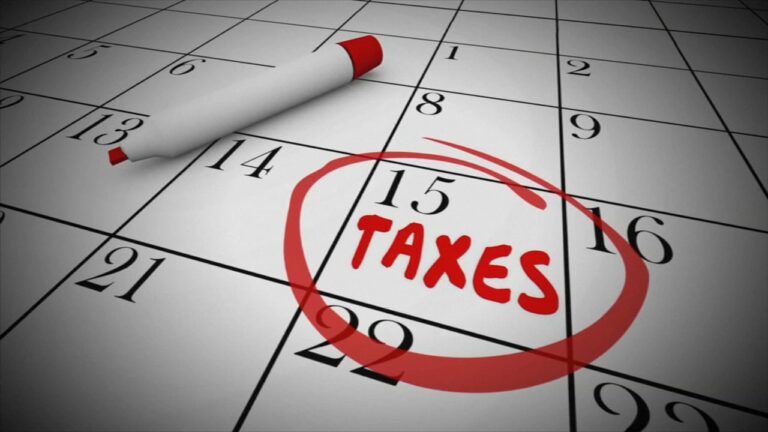🎧 Listen to This Article
As Arizona taxpayers approach the April 15, 2025 deadline to file and pay their individual income taxes, the clock is ticking on one of the busiest periods of the tax season. This deadline not only applies to those filing their individual tax returns, but it also marks the first-quarter estimated tax payment deadline for those who pay taxes quarterly. With such an important date on the horizon, it’s crucial for taxpayers to understand the specific filing requirements, key deadlines, and strategies for avoiding unnecessary delays.
Read More: Who Stands to Benefit from the IRS’s Free Direct File Program?
Who Must File in Arizona?
The Arizona Department of Revenue (ADOR) sets clear thresholds for who must file an individual income tax return based on gross income (GI). Full-year and part-year residents must file a return if they meet the following income thresholds:
- Single or married filing separately: GI > $14,600
- Head of household: GI > $21,900
- Married filing jointly: GI > $29,200
For non-resident individuals, these income thresholds are prorated based on Arizona gross income relative to federal adjusted gross income. Taxpayers who fall below these limits typically are not required to file, though they may choose to do so in order to claim a refund for any taxes paid.
The E-Filing Advantage: Why You Should E-File
Taxpayers are encouraged to e-file their returns to streamline the process. E-filing not only ensures faster processing but also significantly reduces the likelihood of errors. The ADOR has reported that nearly 95% of individual tax returns so far this year have been filed electronically, a strong indication of the benefits of digital submission.
In addition to speed and accuracy, e-filing is free for individuals who meet certain criteria. This is especially important given that paper returns can take up to 10-12 weeks to process, whereas e-filed returns typically take only two weeks. During the peak filing months of April and May, taxpayers filing paper returns may experience further delays due to the high volume of submissions.
For those who file their federal tax returns using Direct File, Arizona taxpayers can also file their state tax returns electronically through the FileYourStateTaxes portal. This seamless process is available to those who qualify, particularly those with basic income and deductions.
Common Filing Mistakes: How to Avoid Delays
Despite the advantages of e-filing, mistakes can still occur, leading to delays or even penalties. To ensure that your return is processed as quickly as possible, consider these critical tips:
- File All Forms Together: Avoid sending forms from different tax years or splitting up forms for the same year. Mixed submissions can confuse the processing system, leading to unnecessary delays.
- Double-Check Key Information: Ensure that your first and last name, address, filing status, and tax ID number (or Social Security number) are entered correctly. Simple errors in these key fields can lead to processing issues.
- Verify Accurate Income and Deductions: Ensure all income, withholding, and any applicable tax credits are accurately reported. If claiming credits, double-check that the correct forms are included.
- Use the Fillable Forms: When filing paper returns, use fillable forms to ensure legibility. Handwritten forms can be misinterpreted, causing further delays.
- Check Bank Information for Direct Deposit: When requesting a refund via direct deposit, ensure your bank routing and account numbers are correct.
- Submit Payments Correctly: If you owe taxes, send the payment to the appropriate ADOR P.O. Box. Include payment vouchers or indicate the correct tax year and identification number to ensure your payment is applied to the correct account.
- Sign and Date Your Return: This seems basic, but failing to sign or date your return can lead to delays, even if all other information is accurate.
Extensions: What If You Need More Time?
If you are unable to meet the April 15 deadline, you can request an extension. Form 204 is used for this purpose, and while it extends your filing deadline to October 15, it does not give you more time to pay taxes owed. If you expect to owe, it is crucial to pay by April 15 to avoid interest and penalties.
Note that if you have already been granted an extension for your federal return by the IRS, you do not need to request a separate extension from the ADOR. Simply check the box on your state return to indicate that the IRS has approved your extension.
Be Prepared and File on Time
As the April 15 deadline looms, Arizona taxpayers should take steps to file their returns correctly and on time to avoid unnecessary delays and penalties. The ADOR’s emphasis on e-filing is a practical solution to ensure that your return is processed swiftly and securely. By following the tips outlined here and reviewing your forms carefully, you can reduce the chances of encountering common errors that might delay your refund or create compliance issues.
For more information about Arizona’s tax filing requirements, check out the Arizona Department of Revenue’s website or subscribe to their email service for updates. Stay ahead of the tax deadline to ensure a smooth filing process this year.
For further details, clarification, contributions, or any concerns regarding this article, please contact us at [email protected]. We value your feedback and are committed to providing accurate and timely information. Please note that our privacy policy will handle all inquiries



